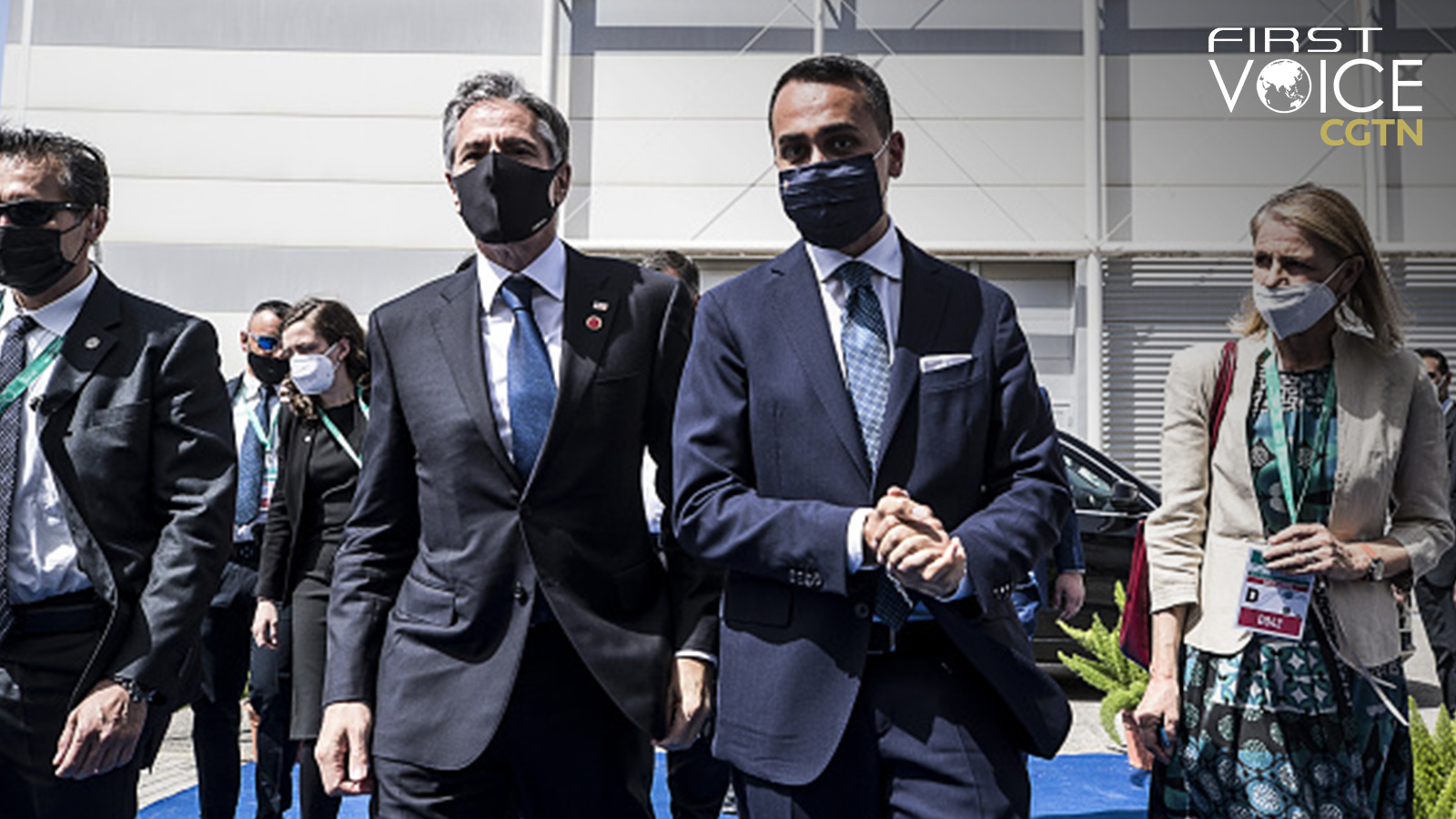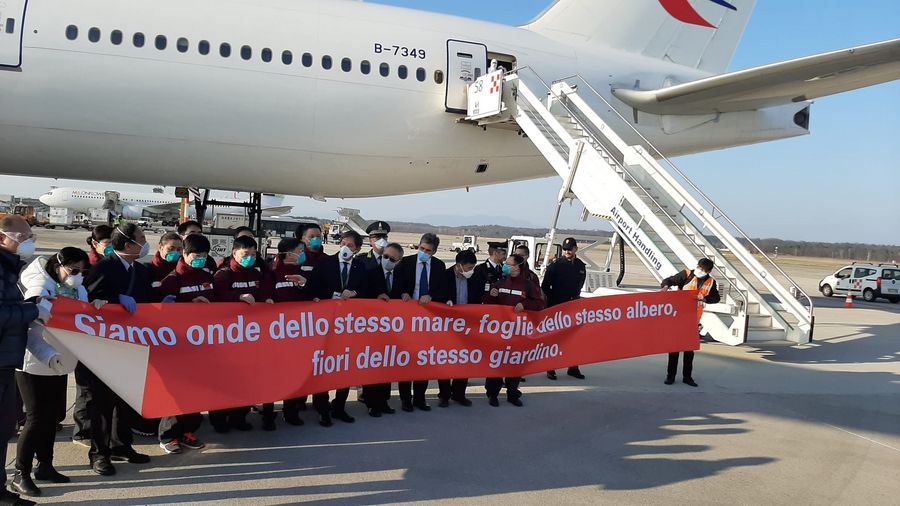
Editor's note: CGTN's First Voice provides instant commentary on breaking stories. The daily column clarifies emerging issues and better defines the news agenda, offering a Chinese perspective on the latest global events.
Italian Foreign Minister Luigi Di Maio made a statement on June 28 – an unsmart, self-sabotaging and politically double-dealing kind of statement.
Standing next to the U.S. Secretary of State Antony Blinken, Di Maio said that Italy has a strong trade relationship with China but it "absolutely not comparable, and it does not interfere with" its relationship with the United States. He called the Italy-U.S. relationship an "alliance of values."
It was a performance of undisguised mea culpa targeted at the top U.S. diplomat. Back when Di Maio was economic development minister in 2019, he helped Italy sign onto China's Belt and Road Initiative (BRI), acting in defiance of the White House's suggestions that there's "no need for the Italian government to lend legitimacy to China's infrastructure vanity project." Italy was the first G7 country to sign up to the BRI.
Apparently, that wind has shifted. Politically, Washington called China the biggest competitor. On the economic level, according to a POLITICO article, the largest share of the EU's post-COVID-19 recovery fund went to Italy, amounting to a whopping 209 billion euros. Italy "now has far less need for Chinese investment," the article said.
If Di Maio and the Italian government are really treating China as an ATM, then they have very short memories and are short-sighted. When COVID-19 hit Europe in 2020 and Italy was the epicenter, China sent medical teams with tonnes of equipment to the country while Italy's friends in the European Union refused its request for medical supplies. Not to mention that the no-where-to-be-found United States was still in denial about the seriousness of the pandemic.

Members of the second batch of the Chinese medical team along with local people hold a banner reading "We are waves of the same sea, leaves of the same tree, flowers of the same garden" and pose for a group photo after they arrived at Milan Malpensa Airport in Milan, Italy, March 18, 2020. /Xinhua
Members of the second batch of the Chinese medical team along with local people hold a banner reading "We are waves of the same sea, leaves of the same tree, flowers of the same garden" and pose for a group photo after they arrived at Milan Malpensa Airport in Milan, Italy, March 18, 2020. /Xinhua
For the companies that are a crucial part of Italy's international identity, China was, is and will remain the largest market. According to CNBC, China is on course to become the world's biggest luxury market by 2025. Even over the course of the pandemic shutdown, the Chinese mainland's luxury market expanded by 45 percent to 44 billion euros. The recovery in retail sales for Prada, a famous Italian luxury fashion house, owes more than half (52 percent) to the Chinese mainland. Italian brand Golden Goose's Asia Pacific CEO Mauro Maggioni said the Chinese mainland "has become the place where all the purchase power is trapped."
And China has been making things actually happen through the BRI. If the Italian government thinks just because they've joined the Build Back Better World, they could get an upgrade to their infrastructure or receive actual benefits, then they might have to wait. It is, at best, a vague pact that will run into enormous funding problems given the financial state the participating countries are in; or at worst, a simple political promise made to show the so-called unity against China that'd mean nothing more than ink on paper. Given that populism and anti-globalism still run high within the U.S., hoping that the Biden administration could cough up the requisite monetary aid is a tall order.
There's no doubt that the relationship between China and the United States has locked other countries in a jam. They might feel forced to pick a side, choose between the two. Most countries seeking a close economic relationship with China while maintaining a political or security relationship with the U.S. have refrained from making explicit statements comparing the two. That's how diplomacy and international relationship work – always leaving room for maneuver in case the wind shifts.
Di Maio's statement is closing off that room. In international relations, the winds shift quickly, and Di Maio should hope that his statement doesn't leave Italy flailing alone.
Scriptwriter: Huang Jiyuan
(If you want to contribute and have specific expertise, please contact us at opinions@cgtn.com.)

